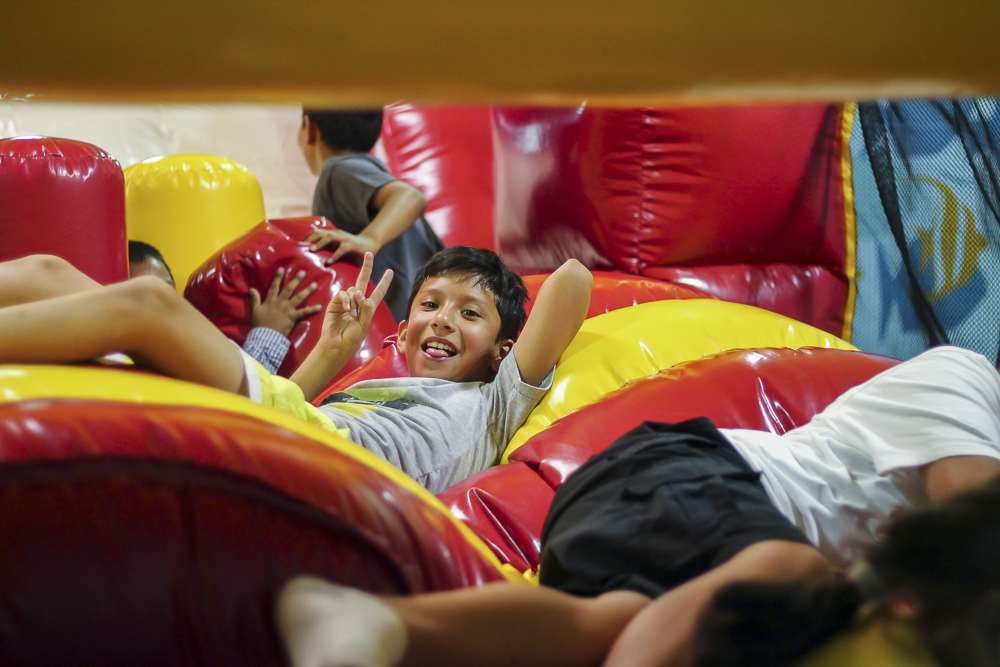The phrase “Biola bubble” is familiar to most students, whether they are a few weeks away from receiving their diploma or finishing up their very first semester on campus. However, many students in a variety of classes are engaged in Academic Service Learning projects to bring perspective of the broader community to students’ lives.
Different Types of Ministry
Solidarity, a ministry partnering with Biola for these service projects, works with the Maple and Garnet neighborhoods in Fullerton, both troubled by gang affiliations. These partnerships were established through the Torrey Institute and the Mosaic Cultural Center, and were initiated by Biola alumna Megan Votta, wrote discipleship leader Jay Wu in an email.
“Biola volunteers get to experience God at work in the lives of these students,” Wu said. “This is a chance to put into practice everything they learn in class, and to embody the vision and values of Biola University in a local context.”
Sophomore English and music major Alea Peister said she has been able to get to know other volunteers better during her time volunteering, as well as learn about reacting to different types of ministry. She said while sometimes none of the kids show up for the program, this has allowed her to learn how to be powerless in ministry.
“We haven’t really been working with the students but we have been able to get to know each other. We have no way of making the girls come,” Peister said. “So I’ve been learning being content with that and realizing that the Lord works when we don’t understand how he is working.”
Fostering Relationships
Other Torrey students have participated with Solidarity through ASL in past semesters, such as sophomore biochemistry major Elizabeth Ketema, who returned to ASL this semester.
“I already knew that I loved being a kid at heart, but being able to experience that again with other children who have such hard backstories made me more appreciative,” Ketema said. “We were going into this trying to bring them a sense of peace in some of the hardships they’re going through in their lives.”
Using the biblical parable of the farmer and the different soils, Ketema added that each semester brings new volunteers, which while helpful does not necessarily foster strong relationships with the kids.
“In that image, that’s how every semester is for these kids. And that’s already something they see in their own, personal lives,” Ketema said. “Hearing their stories last semester, it made me want to be with them and grow with them through that — I didn’t want to be one of those who ended up coming and going as quickly as everyone else. I might not be able to go every semester, but I want to at least foster a better relationship that I might have if I only went for one semester.”
A Learning Experience
Since ASL was required for these classes, students’ responses have ranged from discontent to enthusiasm. Sophomore communication studies major Melissa Alex, who began the program through her theology course this semester, initially felt stressed by the extra hours required.
“It meant a lot of hours and a lot of extra time, and Wednesdays were my only long free days, so it was a little stressful,” Alex said. “My first day, this little boy came up to us and was just so sweet, showed us around the entire place and immediately I was like, ‘this is going to be fun.’ So that was really nice, having that feeling of calm the first day. It was a good start to it.”
Alex said the project became a learning and growing experience, perhaps more for herself than for the kids.
“I feel like I learned a little bit more of what it means to be a child of God, in a way just seeing how these kids go through more than I’ve probably gone through in my life, because of where they’re at, and being reminded that there’s still that innocence,” Alex said.
An Extension of the Biola Community
Ketema encourages students to think of this volunteering as an extension of the Biola community, which she says initially encouraged her to come to Biola. Breaking through the “Biola bubble” can be found only 15 minutes away. Living by faith is an active engagement on our part, and that is the journey the staff at Solidarity is on, Wu said. Wu encourages students to take a risk and make a commitment to go and love.
“I think this kind of ministry is valuable to both academic experiences and learning to love the kingdom of heaven and the body of Christ outside of Biola, which is why we’re here, to have opportunities to put out our feelers and stretch our experiences. That, I think, is the project of Biola,” Peister said.







